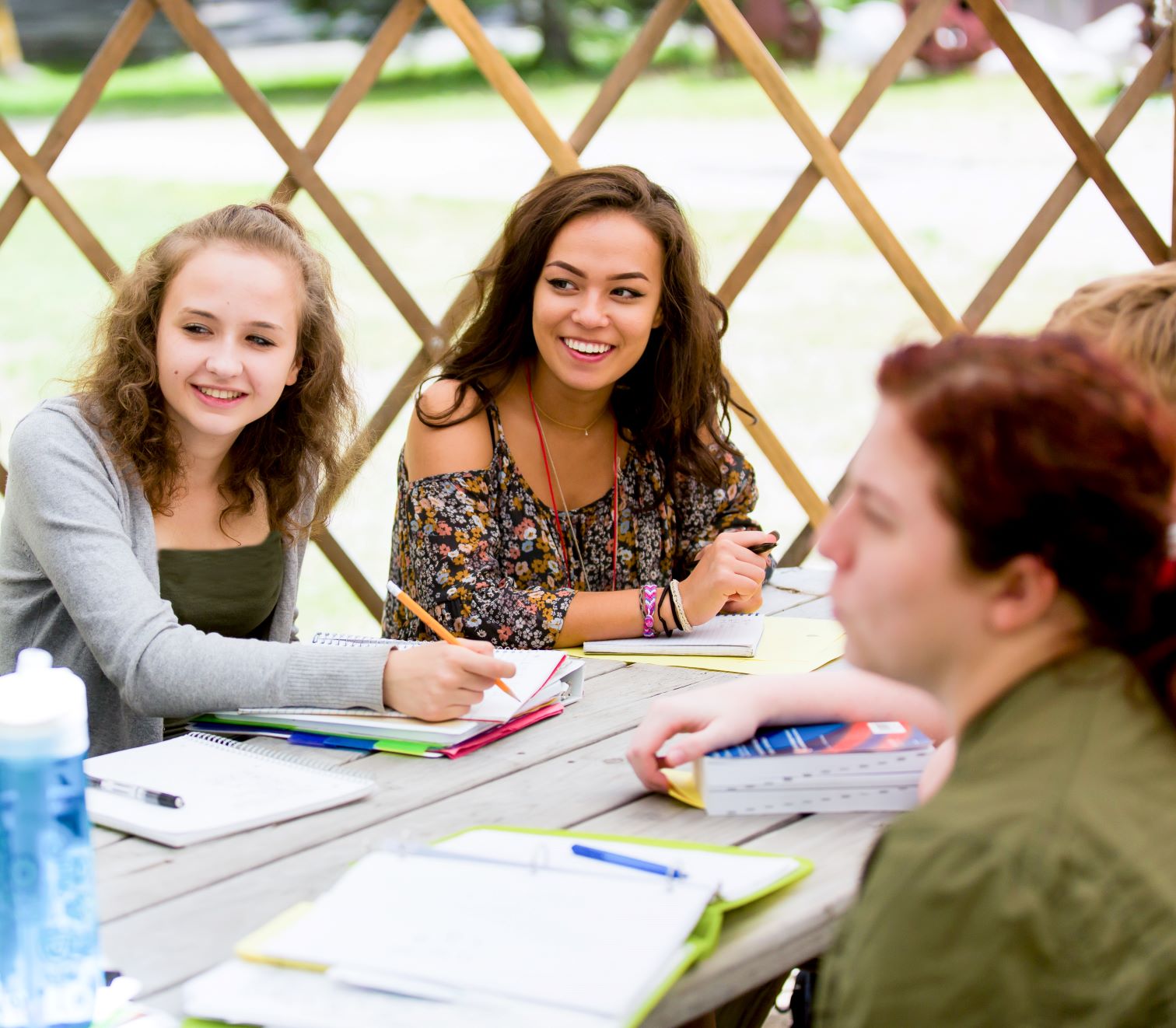Constructive Engagement of Conflict
Constructive Engagement of Conflict (CEC) is a program area that serves students at UWC-USA and the wider community, and is built on the premise that constructive engagement is enabled through a sense of responsibility, personal character and ethical leadership.
Whether serving meals at a soup kitchen, working with incarcerated people at the local detention center, or preparing workshops for their peers, CEC provides students formal opportunities to build the skills of peacemaking, conflict resolution, goal-setting, and collaboration.
"I have learned new aspects and elements of existing pools of knowledge as well as entirely knew sets of knowledge and experiences. I was pushed to the limits of my capabilities of reflection and culture-building as a CEC leader."
-- Paul Ellsiepen '20
Highlights
Portfolio
CEC Program Areas
Constructive Engagement of Conflict activities are concentrated on the following content areas:
- Beyond Borders
- Multiple Identities
- Climate Resilience
- Restorative Justice
- Democratic Engagement

UWC-USA students represent more than 94 countries — much more.
Our identities go beyond borders to the history of the places our parents and grandparents immigrated from and we are moving to. We come from places that cross cultures, watersheds, trade zones and nation states. At UWC-USA, we engage with the conflicts that emerge from specific places and legacies of colonization, war, and economic demands. Living close to the US-Mexico border and neighboring nineteen indigenous nations in New Mexico, students develop a sense of place shaped by geography, transition, and ancient cultural traditions. Through Global Issues presentations and Coffee Table discussions, Southwest Studies and Project Week trips, and workshops and speakers addressing civil conflicts, patterns of migration, and the politics of borders, students listen, learn and imagine together outside lines that may have been drawn to divide.
Some of us proudly claim specific genders, ethnicities, religions, sexualities, abilities; some of us prefer not to use labels; some of us are more comfortable with a spectrum and assert the right to reclaim old terms or invent new language to name ourselves.
We understand that conflict that arises on the journey of defining our identities is food that can nourish our appetite for understanding and remembering. We embrace the complexity of truth, strive to be self-aware and to communicate courageously, and listen humbly and deeply to what it means to be me, and what it means to be you. The CEC Retreat is a powerful weekend of storytelling, sharing, and connecting around issues of identity and belonging.
Our generation is witnessing the most rapid global change in human history. Systemic shifts are profound for species, oceans, and the air we breathe.
We are called to create new approaches to sustainability, economic development, urban organization, resource renewal and reuse. Conflict is deeply embedded in global warming and will be a tool to leverage wisely if we want to continue to call this planet home. The Bartos Institute is proud to co-sponsor Climate Change policy scenarios and to engage with allies in the region around issues of renewable energy, water stewardship, and food justice.
Taking responsibility for ourselves and our campus requires us to cultivate community.
Creating a new home at UWC-USA, we explore shared values and the habits of living together. How do we ask for what we need from our roommates, and respect their needs? What rules do we have, and why? How do we apologize thoughtfully, and heal the harm of mistakes or misjudgement? What does our community — and what do other communities — need to thrive? Restorative Justice circles at UWC-USA help us stay curious about difference, collaborate when problems arise, and gain understanding to help prevent problems going forward. We partner with adult and juvenile justice facilities and programs in the service of restoring community and creating change.
How do different governments function? When does democracy work and why does it fail?
We share different models of governance, explore the rule of law, and develop arguments for and against policies that define issues affecting our lives. Our Global Issues Solidarity, Model UN, Youth in Government activities and Annual Conference provide opportunities to engage with other schools and to learn about local, regional and global approaches to conflict.
